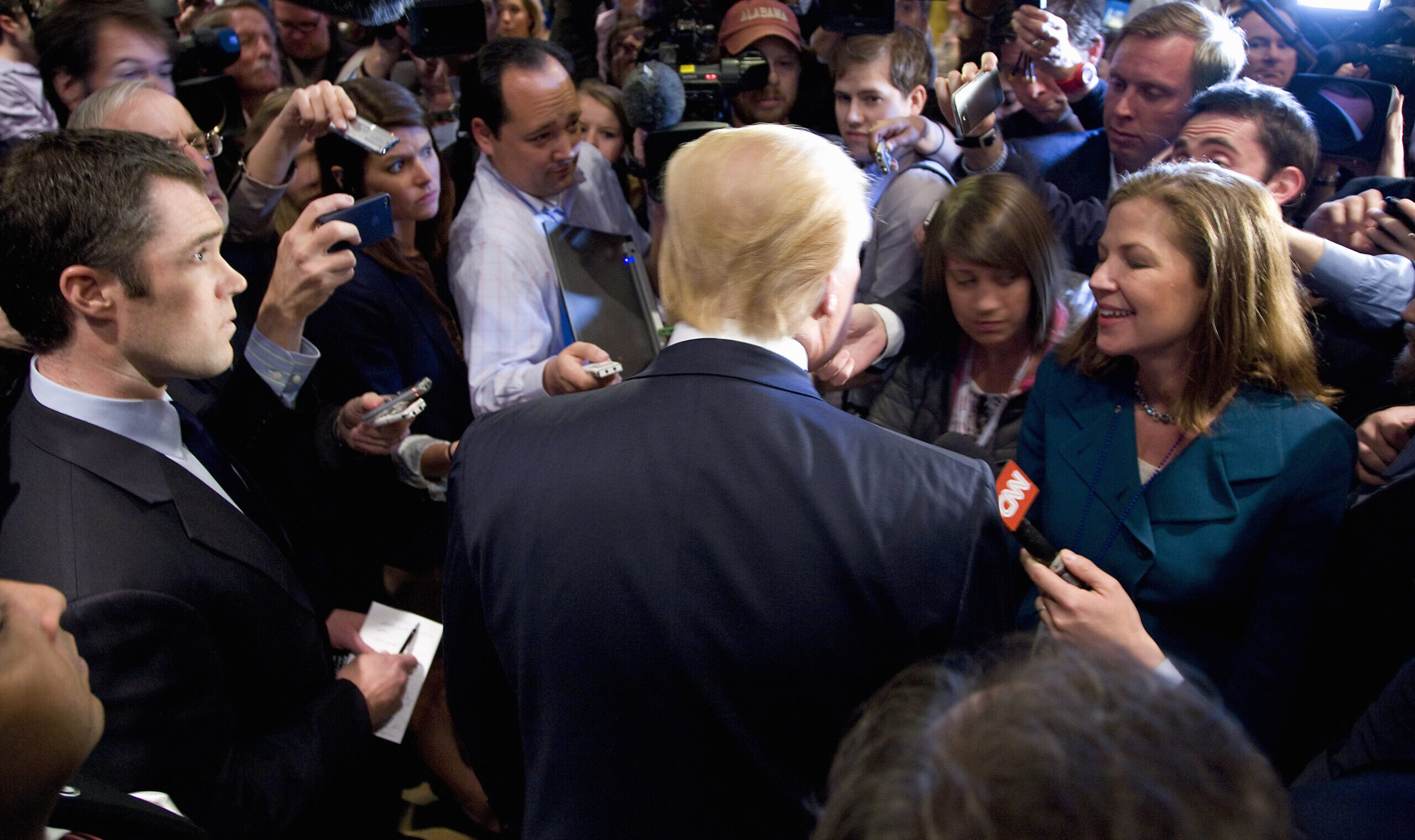Ryanmania Goes Into Overdrive
Philip Klein agrees that Ryan’s chances of winning the Republican nomination are not very good:
That’s why I think the more fundamental question is whether, given Ryan’s lack of executive experience, there’s a broad enough coalition that would welcome his message and choose him over the other alternatives.
I’d like to think that there’s a path to the nomination for Ryan, but I’ve been thinking about it all week, and it’s difficult to see.
Klein compares a Ryan candidacy to Bill Bradley’s 2000 challenge to Al Gore, whose appeal was mostly limited to “educated and affluent white voters.” Ryan doesn’t have any obvious liabilities on social issues, so social conservatives wouldn’t dismiss him, but it isn’t clear why they would rally behind him when they have alternatives. Many Ryan boosters overrate his chances because they place too much importance on his expertise and intelligence. The most wonkish candidates tend not to flourish in either party, and a candidate whose main reason for running is that he is a budget wonk will understandably have difficulty generating enthusiasm among voters. Obviously, Ryan generates enthusiasm among pundits and insiders, but that’s very different. If campaigns prospered because of pundit attention and respect, Tim Pawlenty would still be in the race.
Quin Hillyer doesn’t see why Ryan wouldn’t receive the nomination:
Ryan’s record and persona mean that he is one of the few candidates that can pull from multiple voter groups at once.
In theory, this makes sense, but it was just this sort of theoretical acceptability in Pawlenty’s case that failed to translate into real support. For the record, Ryan’s district isn’t “slightly Democrat-leaning.” Wisconsin’s First District has a PVI of R+2, and it gave Bush more than 50% of the vote both times. It would be fair to call it a presidential swing district, but in terms of House voting it has been solidly Republican since 1994. Like all safe House incumbents, Ryan racks up gaudy double-digit re-election victories.
Michael Medved reports from inside the bubble where everyone he knows thinks a Ryan run is a brilliant idea, and goes on to say this:
Tim Pawlenty tried to emphasize these themes with his aspirational target of 5 percent annual GDP growth, but despite his impressive gubernatorial record, the Minnesotan proved too timid and tenuous to make the sale and withdrew from the race. Now Ryan can pick up that abandoned banner and rally the troops.
It’s true that Ryan would be inclined to make implausible assumptions about growth and incorporate them into his budgeting, but Medved seems to be overlooking that this was one of the things in Pawlenty’s economic plan that was most ridiculed. It was also the aspect of Ryan’s budget proposal that came in for some of the harshest criticism. Ross remarked on Ryan’s budget proposal earlier this year:
One of the great virtues of Paul Ryan’s approach to spending and deficits over the last two years has been his refusal to embrace the pernicious right-wing fantasy, beloved of overzealous supply-siders in the Bush era, that marginal tax cuts usually more than pay for themselves, making serious spending cuts unnecessary. Which is why it’s disappointing to see that while his budget uses C.B.O. projections for economic growth to build its numbers, it also throws in Heritage Foundation estimates of the budget’s macroeconomic impact — estimates which are so transparently ridiculous (2.8 percent unemployment! a unicorn in every pot!) that even their own authors don’t stand behind them. In a budget whose chief selling point is its honesty about the fiscal situation, it’s jarring — and potentially discrediting — to have right-wing fantasy economics making a cameo appearance.
Unwittingly, Medved has just pointed out one of Ryan’s weaknesses (the readiness to endorse ridiculous expectations of growth), and he mistakenly considers it to be one of Ryan’s great advantages. This seems to be typical of Ryan boosters. Their enthusiasm for the candidate keeps them from recognizing the obvious pitfalls of a Ryan campaign. Medved continues:
With the Democrats planning to spend $1 billion to terrify the public about wacky Republicans, Ryan would prove more difficult to demonize than his rivals….How would they slam Paul Ryan?
If Medved can’t imagine how Democrats would attack Ryan, he clearly hasn’t thought through the implications of what he’s saying. I expect that the Democrats would launch two attacks on Ryan: one would focus on his support for vastly increasing the federal government’s unfunded liabilities, and another would rail against him for threatening the Medicare status quo on the other. Ryan is unusually vulnerable to having participated in the largest expansion of the welfare state since the Great Society, which he has followed up with entitlement reform proposals that seem sure to drive away middle-class voters.
Coming back to Ryan’s nomination prospects, John McCormack has done his best to refute the argument that Ryan has serious vulnerabilities. However, he inadvertently acknowledges that Ryan’s path to the nomination has a major obstacle:
For Ryan to win the nomination, he’d have to win New Hampshire.
Whatever else happens in the early contests, Romney is the clear favorite to win New Hampshire, and it is hard to see how anyone, including Ryan, is going to overtake Romney with his enormous built-in advantages and organization in the state. McCormack doesn’t admit that the need to win New Hampshire means that Ryan’s candidacy is almost certain to fail. We know that Ryanmania has fully taken hold when he writes, “Money really isn’t a big issue.” Certainly, money by itself isn’t enough, but Ryan would need to have plenty of it and quickly just so that he could make himself known.
